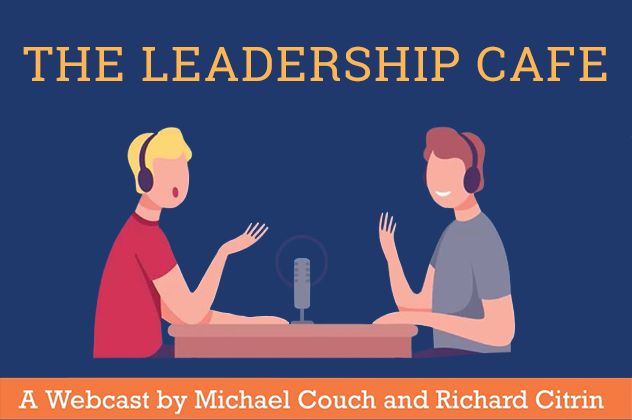Over the years, people have joked that I “need to have my head examined.” Well, last week, I finally did. I had an MRI to check out some tingling I was experiencing. Fortunately, everything returned normal, and my doctor even reassured me that I have a brain!
Medical crises happen to people every day, and when they do, they change lives instantly. For us, this happened when our son was diagnosed with AIDS (before treatment options existed) and later when our daughter’s doctor told me that her form of breast cancer had sealed her fate. In both cases, we were asked, “What’s Next?”
Unfortunately, the outcomes weren’t what we hoped for, and those experiences reshaped our lives.
Similarly, when I was laid off from my corporate job, I spent months worrying about what would come next. But eventually, I slowed down, took a step back, and began to see this life-changing event as an opportunity. What started as a setback turned into one of the most fulfilling decades of my professional life.
We’re often taught to move quickly, solve problems, and push forward at all costs. “Damn the torpedoes, full speed ahead!” And while that approach has its merits—especially in the workplace—it doesn’t always work in every situation. Another path asks us to slow down, listen, and take stock of what’s happening.
Last week, I talked to a client who works 10-hour days, including many weekends. He loves his work, but the constant demands have exhausted him, and he is questioning whether this job is right. The first step in helping him wasn’t finding a solution but guiding him to accept the reality of his situation. He wasn’t struggling because he lacked motivation—he was working because of unsustainable demands.

In this case, acceptance meant acknowledging the truth of his situation. It’s only when we see things clearly that we can move forward.
The Benefits of Acceptance:
- Acceptance allows us to stop resisting reality: When we resist, we waste valuable energy wishing things were different instead of focusing on what we can control.
- Acceptance is not the same as agreement: Acknowledging a difficult situation doesn’t mean we approve of it or plan to stay stuck. It simply means recognizing where we are right now.
- It creates mental space for solutions: When we stop fighting reality, we free up energy to focus on constructive actions and identify “What’s Next.”
- Acceptance reduces anxiety and stress: Much of our stress comes from trying to control the uncontrollable. Letting go of unrealistic expectations can lead to a greater sense of peace.
- Acceptance allows us to process emotions fully: By accepting the situation, we can feel and process emotions like grief, frustration, or fear—rather than suppressing them. This emotional processing is crucial to healing and moving forward.
Acceptance isn’t about surrendering or staying stuck. It’s about recognizing where we are to chart the best course forward. By accepting the truth of our situation—whether it’s a personal crisis, job loss, or being overwhelmed—we free ourselves from the struggle against reality and open the door to new possibilities.
Sometimes, “getting your head examined” isn’t a bad idea. Whether through an MRI or self-reflection, it clears away the noise, helps us face the truth, and gives us the clarity to move forward. Next time life throws a curveball, ask, “Why me?” instead of asking, “What’s Next?” The answer might have been in front of you all along—you just needed to let go of the struggle to see it.
If you’re ready to explore how acceptance can lead to meaningful change in your life or career, send me a message with “Acceptance.”
You May Not Like This…
Scrolling through sports news, I stumbled across a story about Bill Belichick, the legendary Patriots coach, and his new girlfriend, Jordan Hudson. As expected, the online comments were filled with abuse—mostly about their age difference. This same kind of outrage surfaced 40 years ago with interracial couples and 20 years ago with same-sex couples.
What struck me wasn’t the celebrity gossip but the deeper issue: ageism. We like to believe we’ve made progress in accepting diversity, but when it comes to age differences in relationships, it’s clear we’re stuck in the past. Why do people get so worked up over the idea that two consenting adults at different stages in life could find joy and fulfillment together?

This reaction speaks to a cultural bias—ageism—that still lingers. Just as we struggle with accepting our challenges, society struggles to accept differences in others. Perhaps it stems from a discomfort with the idea that age doesn’t limit your vitality, attractiveness, or capacity for love. But it’s time we move beyond these outdated attitudes and allow people the freedom to live and love at any age.
Not Your Ordinary Hurricane, At Least Not For Me
Hurricane Milton is packing severe winds and storm surges, threatening to overwhelm structures along the barrier islands. But this storm feels different because my brother and sister-in-law, who live in Sarasota, are right in its path.

I’ve been in touch with them throughout the week, ensuring their plan is solid and they’re as prepared as possible. They’ve done everything possible, but no preparation can fully protect them from nature’s raw power. This is a moment where we all have to face the harsh truth: acceptance.
Acceptance doesn’t mean resignation. It means acknowledging what we can’t control and focusing on what we can. It isn’t easy, especially when loved ones are involved, but it’s essential. Acceptance helps us stay grounded, clear-headed, and resilient in uncertainty. We prepare for the worst, hope for the best, and trust that it’s enough.
See you next time.
Richard

